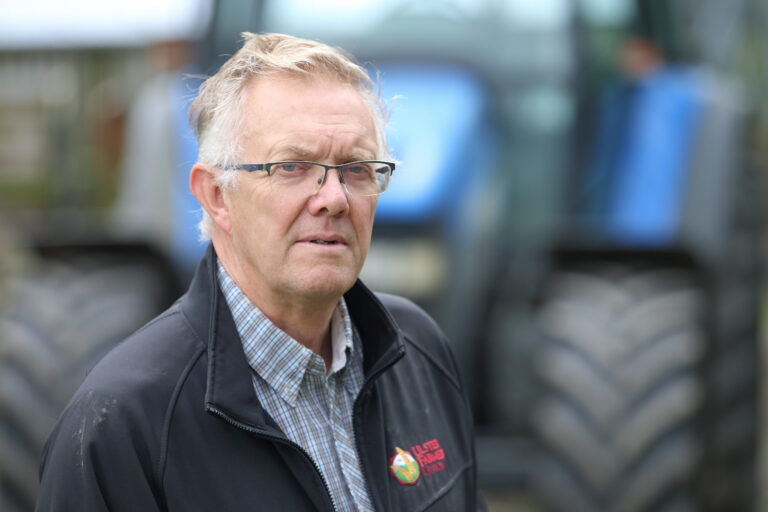The Ulster Farmers’ Union says the EU-Mercosur trade-deal is a “slap in the face” to farmers, adding further uncertainty for the future.
UFU president, Ivor Ferguson said: “The EU-Mercosur news is another huge blow. Agriculture has effectively been sacrificed in order to seal the deal, so that the likes of BMW and Mercedes can gain access to South American markets.
“Food production in Mercosur countries is very different to Northern Ireland. It happens on a significantly larger scale and has much lower environmental and welfare standards. The increased environmental impact elsewhere in the world means the EU is essentially exporting its environmental responsibilities, which is morally questionable.”
The EU announced late last week it had signed a trade deal with the Mercosur group of South American countries.
The Mercosur bloc of countries is comprised of Argentina, Brazil, Paraguay and Uruguay with a combined population of 780m people. Over the last twenty years the bloc has been trying to negotiate a trade agreement with the EU, with agriculture topping the agenda both in negotiations and in the press.
After a final round of technical discussion in Brussels at the end of June, Mercosur ministers met with European Commissioners to sign-off an agreement in principle. There is still a long way to go before the agreement finally comes into force, with other European institutions and national governments needing to provide assent first. If it passes all of these processes, the deal will ultimately mean much freer trade for more than 90% of goods traded between the two blocs and is estimated to save EU exporters €4bn in tariff costs.
Ferguson said the deal would create a significant double standard when it comes to trade and a disastrous, uneven playing field for farmers. “Producing high quality food comes at a cost and input expenses, such as labour, in Northern Ireland are much higher than in Mercosur countries. At the very least, imports should have to meet the same high standard in terms of production. Our farmers will struggle to contend with cheaper food imports and there is the very real risk we’ll be pushed out of, what is an already, fiercely competitive market,” he said.
Ferguson said: “The deal undermines the hard work that farmers do on a daily basis to maintain world-leading production standards for traceability, animal welfare, food safety and the environment, which addresses consumers concerns about where their food comes from and how it is produced. We produce beef to world leading standards and the recent scandal in Brazil is just one example of how production quality is miles apart. The trade deal presents a double standard policy which is discriminating.”
The UFU says it is not opposed to international trade deals and that the EU is likely to remain a key market after Brexit. “We want to continue our trading relationship with the EU. However, this agreement puts Northern Ireland food production and everything that we stand for at stake. This deal has made the future of Northern Ireland agriculture all the more uncertain and will have a severe impact on family farms,” said the UFU president.
the following market access has been granted on both sides.
Market access the EU has granted for Mercosur producers (UK-relevant products):
- Beef: the EU will open an import quota of 99,000 tonnes (carcase weight equivalent – CWE)* at a reduced tariff of 7.5%. Fresh cuts will account for 55% of the quota, with 45% for frozen. The quota will be phased in in equal instalments over six years, with Mercosur countries each taking a share of it – Brazil and Argentina are reported to have earmarked 44,000 tonnes and 33,000 tonnes respectively.
- Poultrymeat: the EU will open an import quota of 180,000 tonnes (CWE) to which no tariff duty will be applied. It will be split 50/50 into allocations for boneless and bone-in cuts and as with beef will be phased in over six equal annual instalments.
- Eggs: two import quotas will be opened for egg products – one of 3,000 tonnes for albumin and one for 3,000 tonnes of yolks. Both are duty free and assigned specifically for use by Argentina; details on a phase-in are currently unclear.
- Pork: the EU will accept 25,000 tonnes (CWE) of Ractopamine-free pigmeat. There will be an in-quota duty of €83/tonne with a phase in period of six equal annual instalments.
- Sugar: an existing import quota of 180,000 tonnes of refining sugar from Brazil will have its in-quota tariff totally removed to 0% duty. There will also be a new 10,000 tonne tariff-free import quota opened for product from Paraguay.
- Ethanol: a new duty-free import quota of 450,000 tonnes of ethanol for chemical uses will be opened along with a 200,000 tonne quota for all uses (including fuel). The second quota will have an in-quota duty of one third of the current rate and both will be phased in over six years in equal annual instalments.
Market access Mercosur has granted for EU producers:
- Cheese: Mercosur will accept a 30,000 tonne quota for EU cheeses at zero duty, phased in with equal annual cuts to the current tariff rate over 10 years.
- Milk powder: a tariff-free import quota will be opened up for 10,000 tonnes of EU milk powders, again with equal annual cuts to the current tariff rate over 10 years.
- Infant formula: Mercosur will open a duty-free import quota for 5,000 tonnes of infant formula, with equal annual cuts to the current tariff rate over 10 years.
- Other dairy products: it has also been reported that Mercosur will cut import duties on butter and yoghurt from the EU, but details are not yet known.
- Other agricultural commodities: Mercosur will also cut import duties on a wide range of other products of varying relevance to UK farmers. These include wines, spirits, a variety of fruits and vegetables, pigmeat and confectionary. Full details are not yet available.


